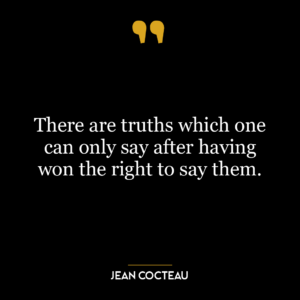Virtue in its grandest aspect is neither more nor less than following reason” is a profound statement that centers on the idea that virtue, or moral excellence, is fundamentally about adhering to reason. In other words, it suggests that true virtue is not about blindly following societal norms or rules, but rather about using reason and logic to guide one’s actions and decisions.
This perspective offers an interesting shift away from traditional views of virtue as a set of predefined moral laws or commandments. Instead, it places the responsibility of moral judgement squarely on the individual, asserting that virtue is not a fixed state but a dynamic process of rational thought and decision-making.
The quote also implies that there is an inherent wisdom or ‘rightness’ in following reason, suggesting that rational thought inherently aligns with moral goodness. This could be interpreted as a belief in the inherent rationality of the universe, or the idea that there is a natural order or logic to things that, when followed, leads to virtue.
Applying this idea to today’s world, one could argue that many societal issues arise from a departure from reason and an overreliance on dogmatic beliefs or unexamined norms. For example, prejudice and discrimination often stem from irrational fears or misconceptions, rather than reasoned understanding. In such cases, following reason could lead to more virtuous, fair, and compassionate outcomes.
In terms of personal development, this quote could serve as a reminder to constantly question and critically examine our beliefs and actions, rather than simply accepting them as ‘given’. It suggests that personal growth and moral development require an ongoing commitment to reason and critical thinking, and that virtue is not a static state but a dynamic process of continual learning and self-improvement.










